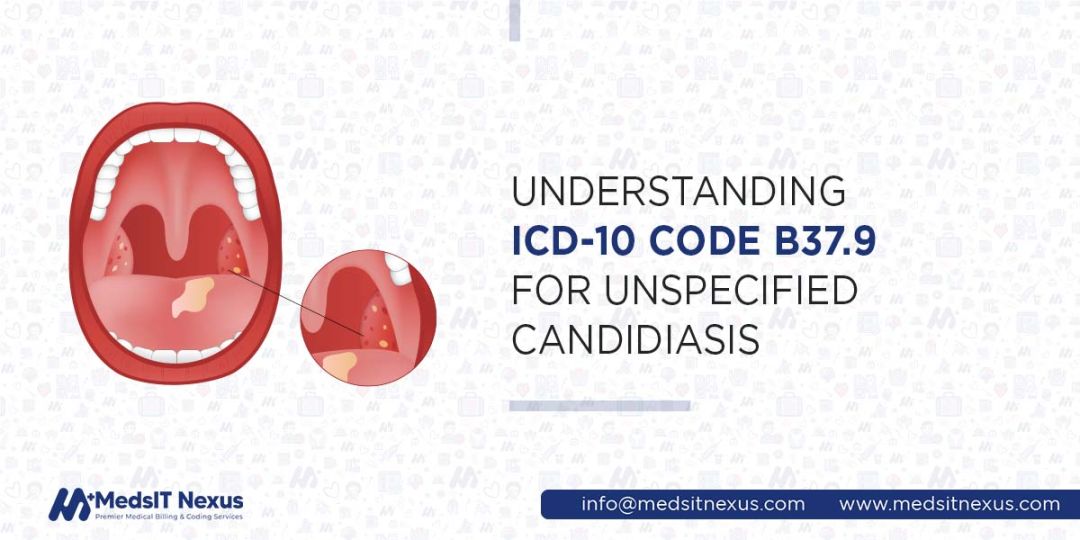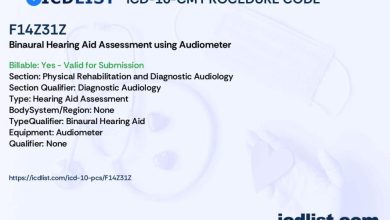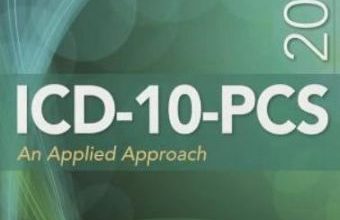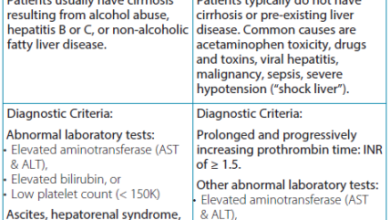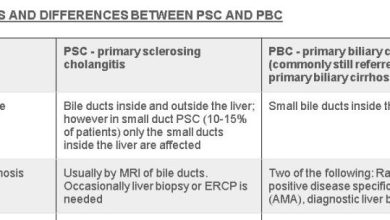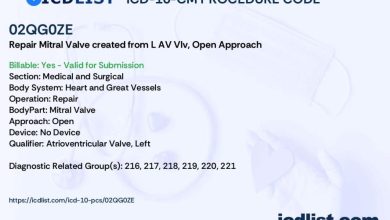Eosinophilic Esophagitis: Decoding The ICD-10 Code
What is Eosinophilic Esophagitis?
Eosinophilic esophagitis is a chronic immune-mediated inflammatory condition of the esophagus characterized by an abnormally high number of eosinophils in the esophageal tissue. Eosinophils are a type of white blood cell that plays a role in allergic reactions and inflammation.
ICD-10 Code Information
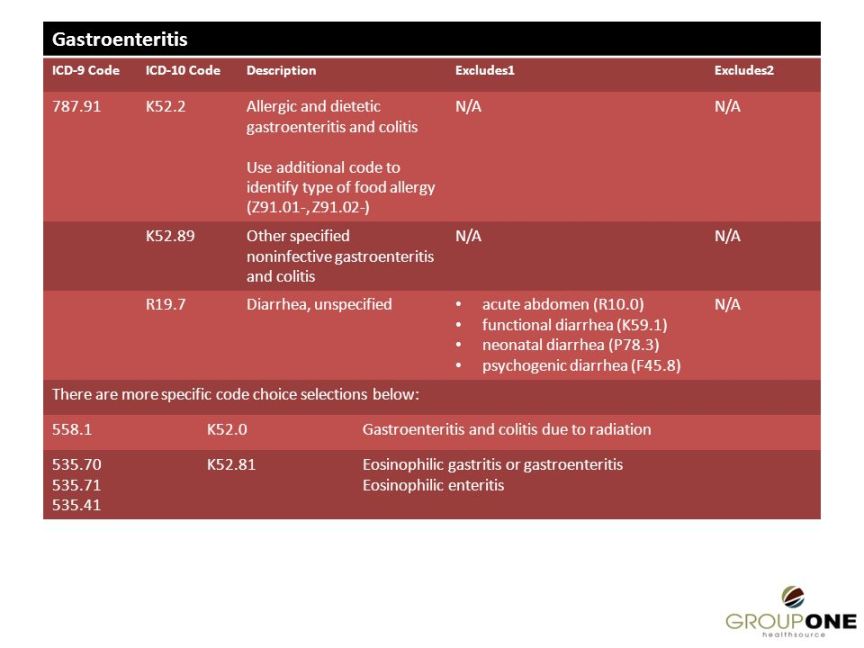
The ICD-10 code for eosinophilic esophagitis is K20.0. This code is used to classify and code diagnoses related to eosinophilic esophagitis in medical billing and coding.
Diagnostic Related Groups (MS-DRG)
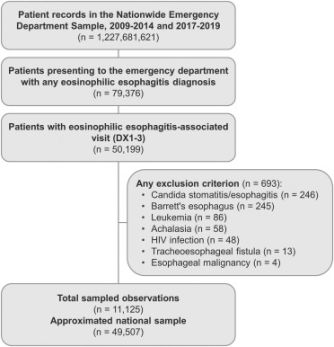
Eosinophilic esophagitis falls under MS-DRG 391 – Esophagitis, Gastroenteritis and Miscellaneous Digestive Disorders with MCC (Major Complications or Comorbidities) or CC (Complications or Comorbidities). This DRG is used for reimbursement purposes in inpatient hospital settings.
Convert to ICD-9 Code
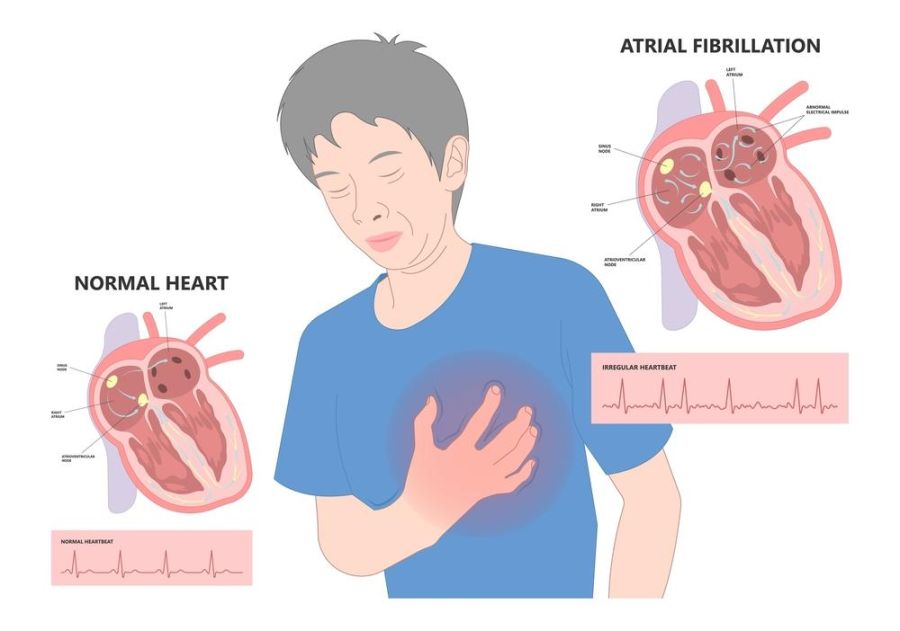
The equivalent ICD-9 code for eosinophilic esophagitis is 530.13. This code was used prior to the implementation of ICD-10 coding system.
Code History
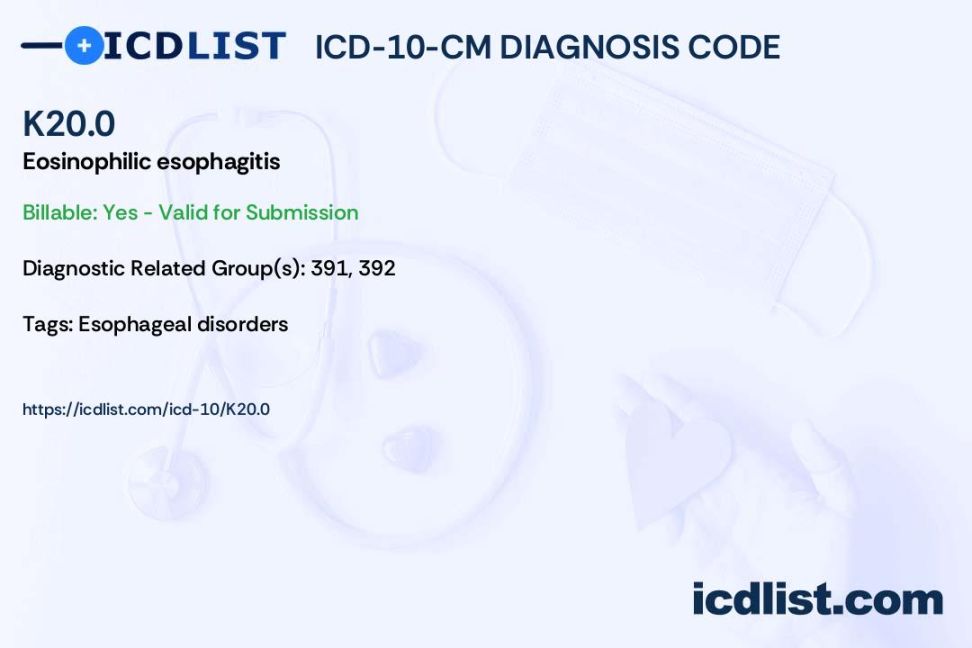
The ICD-10 code K20.0 for eosinophilic esophagitis was introduced in 2016 as part of the regular updates to the ICD-10 code set.
Approximate Synonyms
Some approximate synonyms for eosinophilic esophagitis include allergic esophagitis, eosinophilic gastroenteritis, and eosinophilic gastrointestinal disorders.
Clinical Information
Eosinophilic esophagitis is a chronic inflammatory condition that can lead to symptoms such as difficulty swallowing, chest pain, heartburn, and food impaction. It is often associated with allergic conditions such as asthma and eczema.
Causes
The exact cause of eosinophilic esophagitis is not fully understood, but it is believed to be related to a combination of genetic and environmental factors. Allergens, such as certain foods or airborne allergens, may trigger an immune response in the esophagus.
Symptoms
Common symptoms of eosinophilic esophagitis include difficulty swallowing, food impaction, chest pain, heartburn, and nausea. In children, symptoms may include poor growth or failure to thrive.
Diagnosis
Diagnosis of eosinophilic esophagitis is typically made through a combination of clinical symptoms, endoscopic findings, and biopsy results showing an increased number of eosinophils in the esophageal tissue.
Treatment
Treatment for eosinophilic esophagitis may involve dietary changes, such as eliminating trigger foods, and medications to control inflammation and symptoms. In some cases, endoscopic procedures may be necessary to dilate strictures or remove food impactions.
Conclusion
In conclusion, eosinophilic esophagitis is a chronic inflammatory condition of the esophagus characterized by an increased number of eosinophils. The ICD-10 code K20.0 is used to classify and code diagnoses related to this condition. Treatment may involve dietary changes, medications, and endoscopic procedures to manage symptoms and inflammation.
FAQs
1. Is eosinophilic esophagitis a common condition?
2. Can children develop eosinophilic esophagitis?
3. How is eosinophilic esophagitis diagnosed?
4. What are the treatment options for eosinophilic esophagitis?
5. Is eosinophilic esophagitis a lifelong condition?




